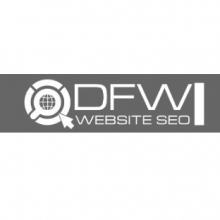Explore Top Angular Development Companies in Dallas

TatvaSoft-Software Development Company Verified Company
Dallas, United States Head office in: India
Custom Web and Mobile development organization
We at ARTICON believe and respect this proverb because we are in the business of creativity and ideas.
Services:

App Maisters Inc. Verified Company
Dallas, United States Head office in: United States
Trusted Digital Transformation Partner for Startups, Growing, Enterprise Companies & Government Agencies

Galaxy Weblinks Verified Company
Dallas, United States Head office in: United States
Custom software development in Boston
Abacus Data Systems provides advanced IT outsourcing services, tailor-made and customized for your business needs.
TechRBM is a Texas-based IT services company that provides software development, web development, digital marketing, and recruiting solutions.
Providing e-commerce solutions since 2004
Services:
American Web Developers is a company that provides professional web development services.
Services:
As a leading brand in the realm of business transformation, we specialize in B2B digital transformation services.

Brainsmiths Labs Verified Company
Dallas, United States Head office in: India
Enhancing Value for Our Global Clients
Services:

Techno Exponent Verified Company
Dallas, United States Head office in: India
Best Web App and Mobile App Development Company
Services:
- 1
- 2
Filter Angular Development Companies in Cities near Dallas
Dive deeper and find the company you need close to you or, from a specific city you prefer. Some of the best companies come from smaller places
Find more Angular Development companies around the world
TechBehemoths is the world's most advanced and user-friendly platform to match IT Companies with real clients without hustle.
Dallas IT Industry: Data and Insights
Dallas is the biggest city in Texas and has an enormous pool of human resources, including the IT industry. In these regards, the city generates annually around 13,000 tech graduates, out of which 8500 on average are hired in various subsectors of the IT industry.
Between 2010-2017, the hiring rate in the IT industry in Dallas grew on average by 7,8%, which is close to the federal average of 7%, according to a report from the Federal Reserve Bank of Dallas.
The Dallas area is also home to major technology companies, including Texas Instruments and AT&T. The information technology and telecommunications cluster employed about 8 percent of the metro’s workforce in 2017. Also, referring to IT companies, Dallas is the home of about 3000+ web & software agencies with more than 230K people working there.
The local IT industry in Dallas has been one of the city’s economic backbone, with a high contribution not only to the budget but also in developing the human infrastructure and improving and promoting social inclusion via different local and federal programs.
In the near future, Dallas is expected to expand the IT services industry in other fields, such as cloud computing, virtualization, wireless applications, and content delivery, data-center expansions, biomedical, and nanotechnology.
For potential clients interested in working with Dallas IT companies, it is worthy to note that the fast-developing trend of the entire IT industry will make Dallas one of the most well-developed and at the same time more expensive. However, IT projects executed with and by Dallas companies are considered high-quality and creative.
What is Angular and what are its benefits for your projects?
Angular (formerly AngularJS) is a popular open-source web application framework maintained by Google and a community of developers. It's used for building dynamic, single-page web applications (SPAs) and web-based applications in general. Angular provides a structured and organized way to create complex web applications by extending HTML with additional features and enabling the development of interactive, responsive, and maintainable front-end web interfaces. Here are some key aspects and concepts of Angular:
-
Component-Based Architecture
-
Templates
-
Directives
-
Dependency Injection
-
Services
-
Routing
-
Observable and RxJS
-
Modules
-
Testing
-
Cross-Platform
Angular's structured approach, strong tooling, and vibrant ecosystem of libraries and extensions make it a powerful framework for building modern web applications. It is particularly well-suited for large and complex projects where maintainability and scalability are crucial.
Companies may choose Angular over other front-end frameworks for their projects for a variety of reasons, depending on their specific needs and priorities.
-
Google Backing: Angular is developed and maintained by Google. This association often gives companies confidence in its long-term support, stability, and continuous improvement. Google's involvement is seen as a sign of reliability and commitment to the framework.
-
Mature and Established: Angular has been around for a while and has a strong track record of being used successfully in large-scale enterprise projects. It has a well-defined architecture and best practices, which can be beneficial for maintaining and scaling applications over time.
-
TypeScript Support: Angular is built with TypeScript, a statically-typed superset of JavaScript. TypeScript provides better tooling, code maintainability, and catches errors at compile time, which can reduce bugs and enhance code quality, making it attractive to companies that prioritize robust code.
-
Full-Featured Framework: Angular provides a comprehensive set of tools, libraries, and features out of the box, including routing, form handling, HTTP client, and more. This can save development time and effort compared to integrating multiple third-party libraries in other frameworks.
-
Two-Way Data Binding: Angular offers powerful two-way data binding, which allows for automatic synchronization between the data model and the view. This feature can make it easier to develop interactive and responsive user interfaces.
-
Large and Active Community: Angular has a large and active community of developers and a wealth of resources, including documentation, tutorials, and third-party libraries. This can be beneficial for finding solutions to common problems and getting support when needed.
-
Enterprise-Ready: Angular provides features like dependency injection, modularity through modules, and a strong emphasis on testability. These characteristics are well-suited for building robust and maintainable enterprise-level applications.
-
Strict Coding Standards: Angular enforces a set of coding standards and best practices, which can lead to more consistent and readable code. This can be important for companies with multiple developers working on the same codebase.
-
Cross-Platform Development: Angular can be used for building both web and mobile applications. Companies looking to develop applications for multiple platforms may choose Angular for its ability to share code between web and mobile apps using technologies like NativeScript or Ionic.
-
Integration with Backend Technologies: Angular can easily integrate with various backend technologies and APIs. This makes it suitable for projects where the front end needs to communicate with different types of server-side applications.
-
Security Features: Angular provides built-in security mechanisms to help prevent common web vulnerabilities like Cross-Site Scripting (XSS) and Cross-Site Request Forgery (CSRF). This can be crucial for projects with high security requirements.
-
Ecosystem and Tooling: Angular has a rich ecosystem of tools, extensions, and IDE support, including Angular CLI for project setup and management. This can streamline development workflows and improve productivity.
Ultimately, the choice of Angular or any other framework depends on the specific project requirements, the development team's expertise, and the company's long-term goals. Companies evaluate various factors to determine which framework aligns best with their needs, resources, and priorities.





